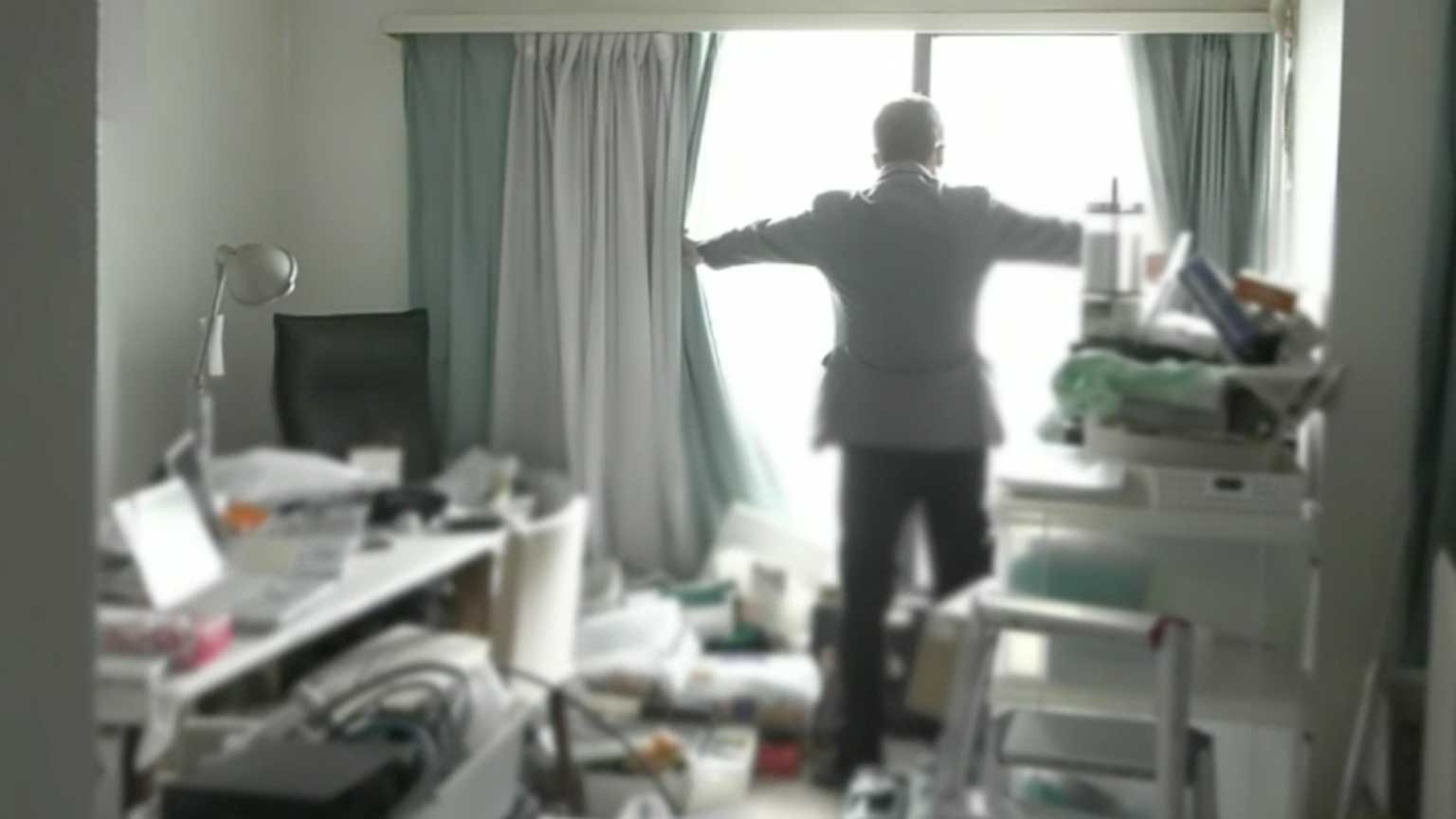In this case, the caller was the chairperson of a condominium management association in Yuzawa, a popular hot spring and ski resort destination in Niigata Prefecture. The chairperson was calling the daughter of his tenant who had died five years earlier. He was trying to track down a legal heir to take over the abandoned unit.
Resort condominiums
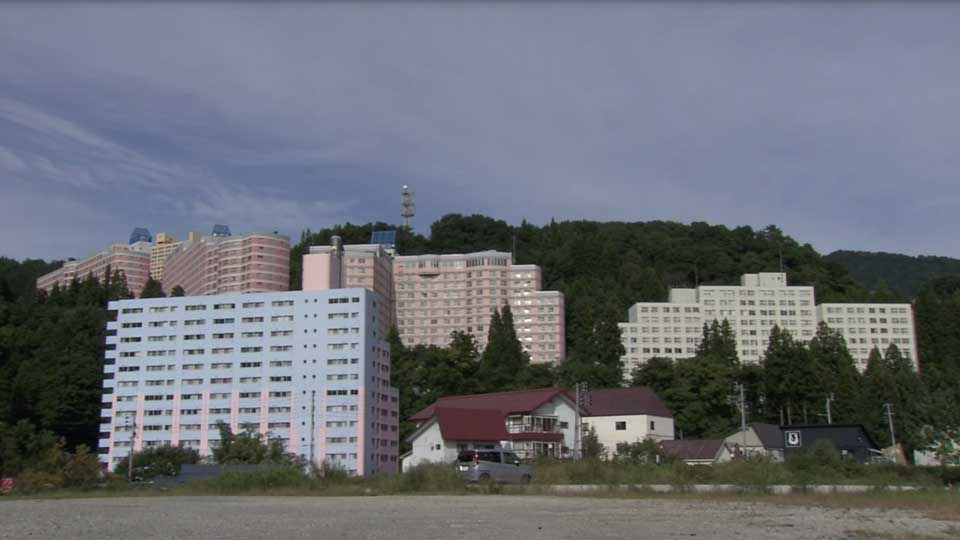
The elderly pensioner, a retired cab driver, had moved to the mountain resort from Tokyo. He lived alone, following his divorce.
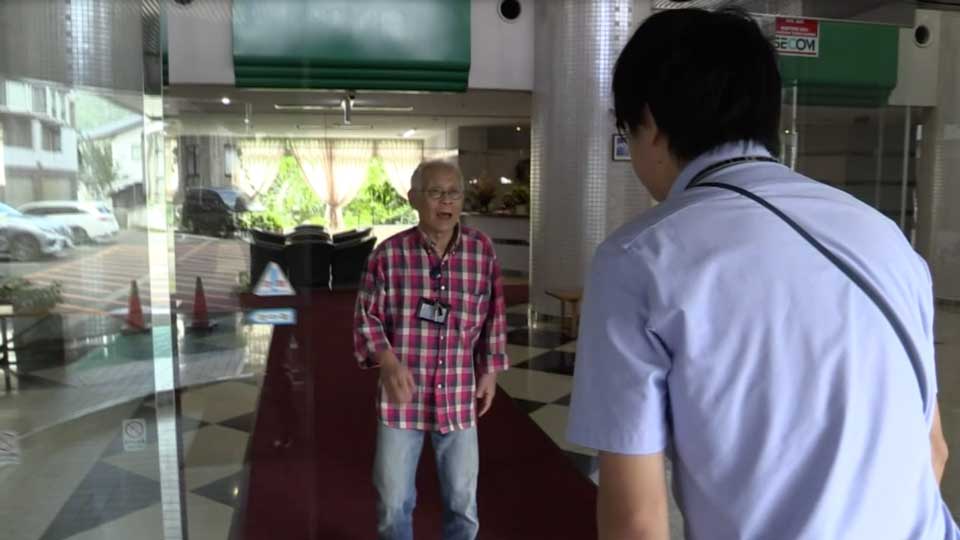
The chairperson said he was diabetic, always talking about his end of life. "He used to say, 'When I die, I will die without causing trouble for anyone.'"
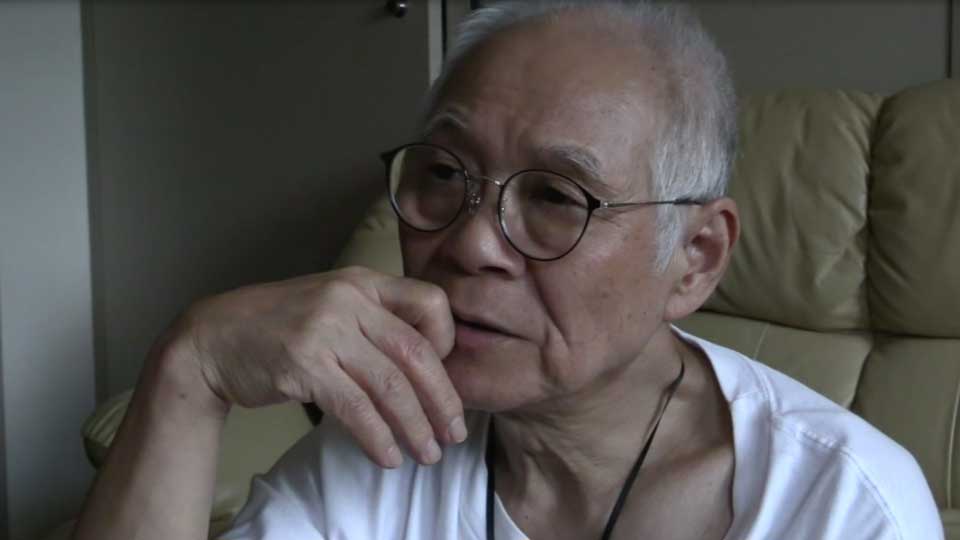
His room was abandoned
Sadly, trouble is exactly what followed when the man passed away, three years after moving in. His room was left unattended for a year and a half, during which time the management fees remained delinquent.
Around 1.5 million yen in legal and other costs necessary for the disposal of the deceased's belongings were covered by resident management fees. That left other residents footing the bill.
Many rooms remain with belongings
According to the local Yuzawa government, the resort boasts 57 condominiums most of them built during Japan's bubble economy of the late 1980s. A boom in skiing coincided with a construction frenzy of condos for use as vacation homes.
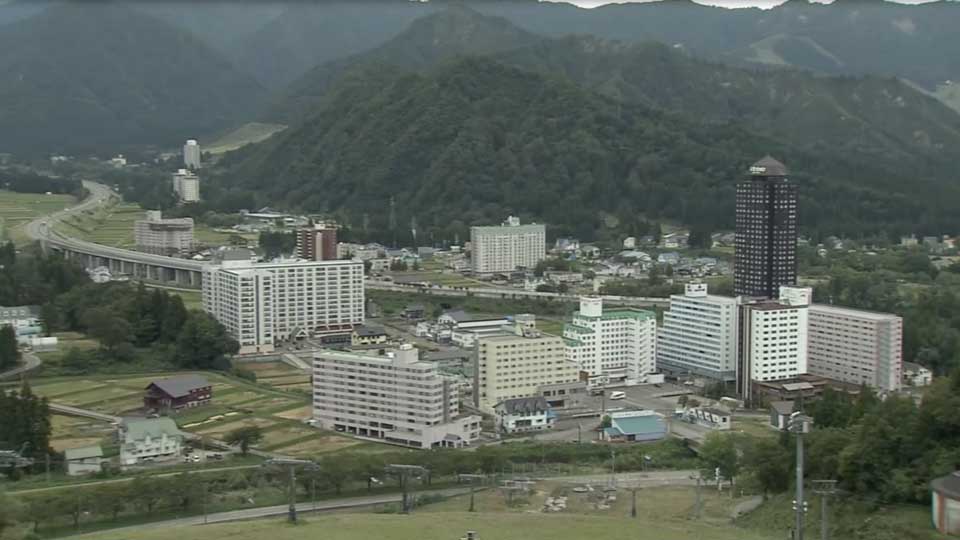
As of September this year, nearly half of the residents living in those condominiums were elderly.
Ono Hajime is director of Angel Group, a local real estate management company. He shows us a file of rooms left empty after occupants died. Several show the word "rights relinquished" written alongside in red.

"It means that I confirmed a renunciation of inheritance. This is a case where a notice was sent to the legal heirs, but they ultimately renounced the inheritance. It is very easy for them to do so. Such cases are increasing."
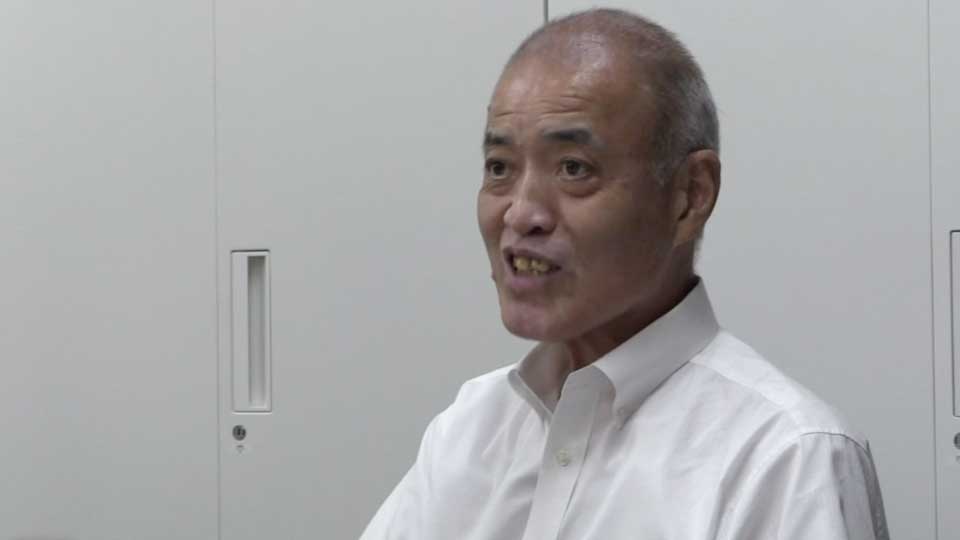
Plummeting real estate values
Ono blames the decline in real estate values. During the bubble economy, some properties were priced at over 100 million yen (662,000 US dollars) per room. Today, many are worth less than 1 million yen.
"Many people are inclined to abandon the property as soon as possible, put off by the monthly maintenance and repair fees of several tens of thousands of yen, as well as annual property taxes."
Ono fears for the future. "If the retail value does not increase, more and more people will abandon their family homes, and there will be no more residents. If this happens, condominiums will not be able to collect management fees and will not be able to survive," he said.
Beyond Yuzawa
And the problem is not confined to Yuzawa. Government figures show Japan are grappling with aging populations and properties abandoned by the deceased.
In the past ten years, there have been more than 10,000 instances of it. Urban areas with large populations, such as Tokyo and Osaka, saw the highest number of instances.
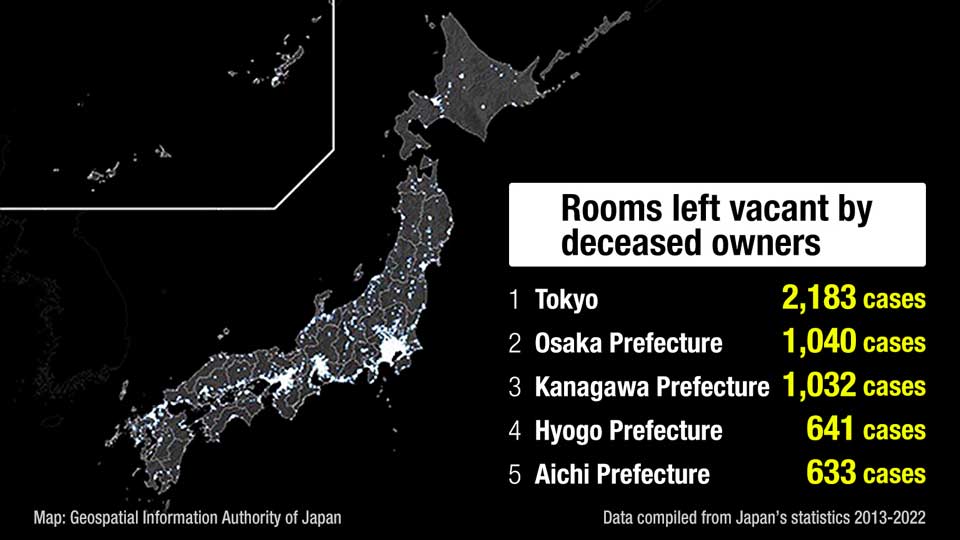
But in per capita terms, Niigata Prefecture's Yuzawa Town topped the list, followed by Atami in Shizuoka Prefecture, and other regional tourist destinations.
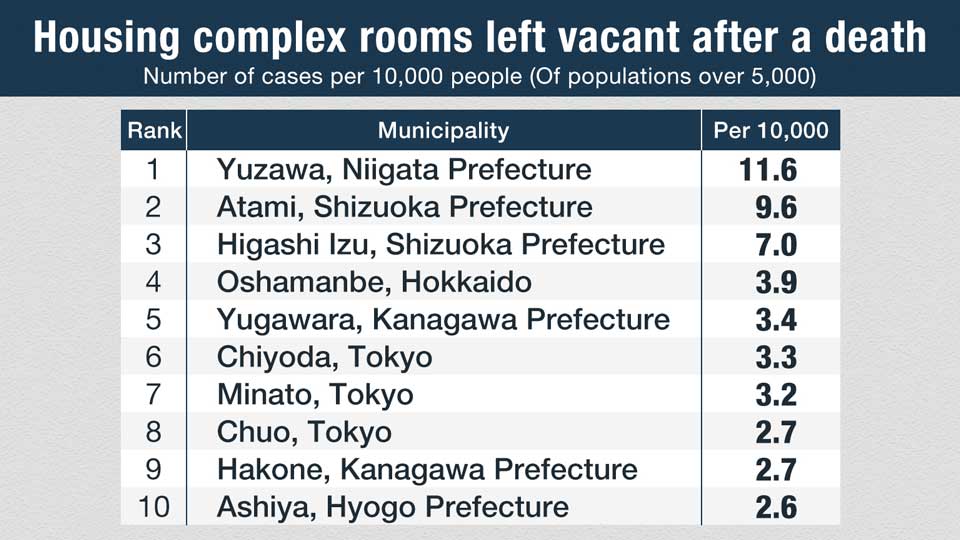
Properties revamped and repurposed
Yuzawa Mayor Tamura Masayuki says the town is working on ways to increase the value of condominiums. New initiatives have already begun around town to attract the younger generation. Renovation work on old condominiums is adding features like co-working spaces to attract remote workers.
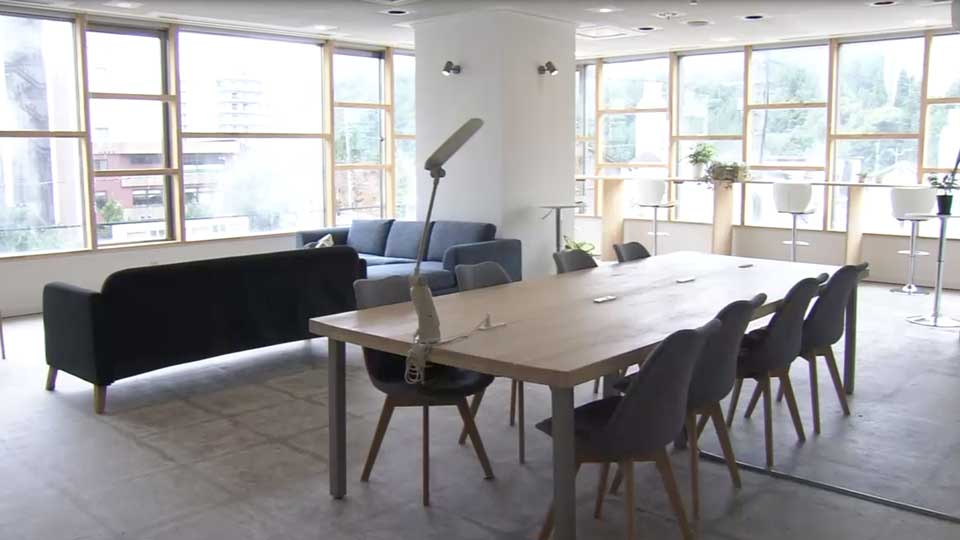
Meanwhile, some residents in Yuzawa area doing their bit to tackle the problem of rooms left behind.
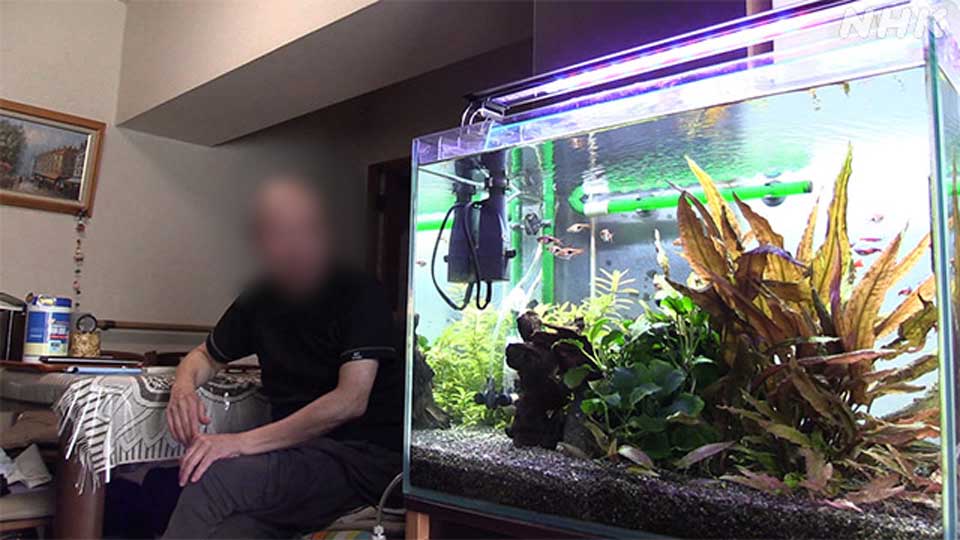
We spoke to a condominium resident in his 70s who lives alone. He showed us a will he had drawn up with the help of a judicial clerk. It states that the room and the property in it will be given to a close friend or other person. He says he is making preparations to ensure that the room will not be left unattended after his death.
When he was a board member of a condominium management association, he also experienced the difficulty of finding an heir after the death of a resident.
"You would hope that someone would do it for you if you died, but that would be a nuisance. In fact, it is a nuisance for the management association," said the man.
"It's hard to solve the problem of these rooms, and I'm worried I might end up alone, so I thought I should put it in a will."
